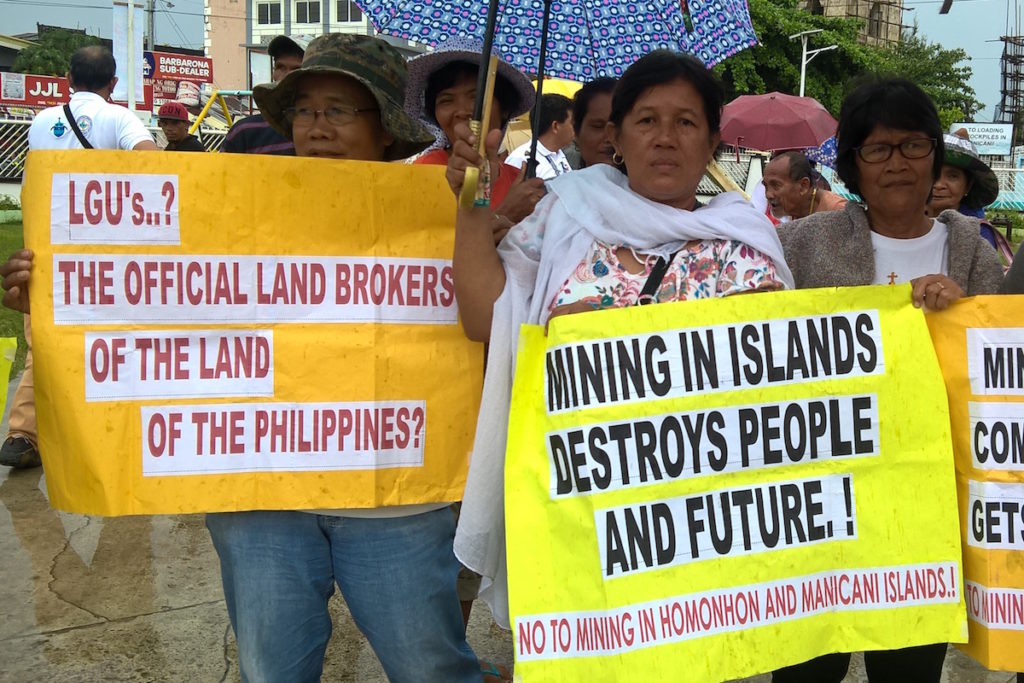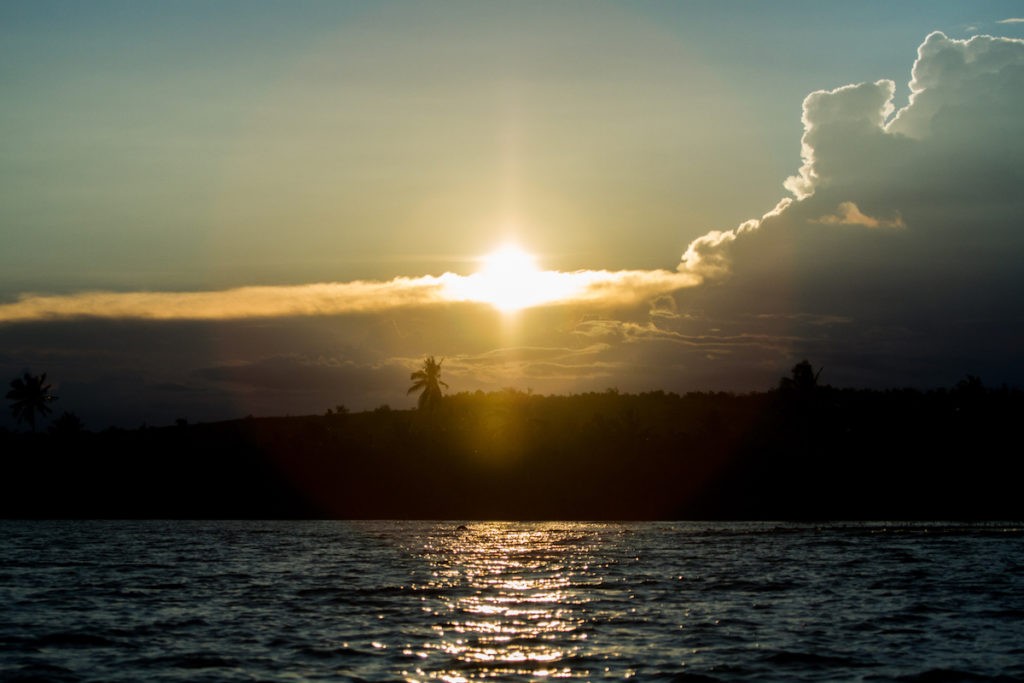Homonhon Island, located off Guiuan town in Eastern Samar province in central Philippines, is believed to be the site of the first Mass in the country.
For this reason, the Catholic Church in the Philippines considers the island facing the Pacific Ocean nothing less than hallowed ground, and its inhabitants the inheritors of a glorious tradition and long history of the Christian faith in Asia.
It was in Homonhon where the Portuguese explorer Ferdinand Magellan first landed on Philippine soil on March 16, 1521, after three months sailing in the Pacific Ocean on the way to the Moluccas Islands. From there, he was guided by a local chieftain to nearby Cebu where he eventually met an untimely end in the hands of another chieftain.
If Homonhon now merits a footnote in Philippine history books, it may well earn another distinction, but a dubious one — as yet another island that faces irreversible ecological destruction because of uncontrolled mining activities.
Today, church officials are worried sick over serious environmental damage and even health risks from the presence of a Chinese-manned vessel loading precious minerals that are part of the island’s ecological balance dating from centuries back.
From the looks of it, this is a sneak attack on the country’s fragile environment while the government is preoccupied with responding to the COVID-19 pandemic.
On April 14, a Chinese-manned cargo vessel docked a few miles away from the shore of Homonhon to load some 7,000 metric tons of chromite ore. The cargo is said to be worth more than 61 million pesos (about US$1.2 million) and comes from the mining operations of a company called Tech Iron Mining Corporation.
The prospect of further environmental damage on the island has alarmed church officials even as they also must deal with the very real possibility that they could be infected by the deadly coronavirus with the presence of the Chinese-manned vessel in their midst.

Father Christian Ofilan of the St. John the Baptist Parish on the island lamented that the national government, particularly the Department on Environment and Natural Resources, had abandoned them when the agency backtracked on its earlier order for Tech Iron to suspend the loading of the chromite ore shipment amid the coronavirus outbreak.
“It feels like we are on our own at this point. For this government, it is China’s interests first, our rights second,” he said.
“We have to protect the common good, our health,” Father Ofilan said.
“We are appealing to all relevant authorities to temporarily postpone the scheduled loading of minerals here in Homonhon until after this health crisis,” he added.
For his part, Bishop Crispin Varquez of Borongan said all they were asking for was prudence on the part of the national government to protect the province, which has been under lockdown since March 22 due to COVID-19.
The foreign vessel, MV VW Peace, is manned by a crew of 13 Chinese and four from Myanmar, alarming the residents of the potential health risks they might bring. The cargo vessel arrived in the seawaters of Homonhon on April 4 to collect the chromite ore. Once the loading is completed, the foreign vessel will reportedly leave the island and directly sail to China.
Officials of the town and the province had earlier opposed the loading activity until the health crisis is over.
Eastern Samar Governor Ben Evardone said in a resolution that “all entries of non-residents to the provincial coastlines, regardless of origins, are hereby prohibited.”
He also tasked concerned agencies to “refuse the entry of any vessel attempting to dock and enter the province through the coastlines.”
Environment Secretary Roy Cimatu had earlier directed the region’s Mines and Geosciences Bureau to temporarily suspend loading work, saying this was a precautionary measure against the spread of the coronavirus. But he suddenly made a 180-degree turn on his stand without any explanation and green-lighted the mineral export to China.
Another informed source said the big mining firm operating on the small island uses a process “so destructive that they will decimate the whole island and its flora and fauna by the time they are done.”
“They are shipping rocks and boulders to China, thus gouging out Homonhon’s natural rock and boulder formations. After the mining company leaves, the island will be barren and stripped of vegetation,” said the source.

The source added that while the mining firm provides employment to the locals, “they do not really enrich the local economy since they pay starvation wages.”
“They may be providing some help to the community, but this seems to be mere window dressing. The community programs sound nice on paper but are really ineffective in addressing the people’s welfare.”
But not all may be lost as environmental groups in the region are raising a hue and a cry over the imminent environmental devastation of Homonhon Island and its adverse impact on the local economy and people’s lives.
If only local and national authorities will act promptly, they say, Homonhon’s slide toward total environmental destruction may yet be stopped — and the island will not just be a footnote in history books but a beacon of light in the global crusade to protect the environment for future generations.
Ernesto M. Hilario writes on political and social justice issues for various publications in the Philippines. The views and opinions expressed in this article are those of the author and do not necessarily reflect the official editorial position of LiCAS.news.






